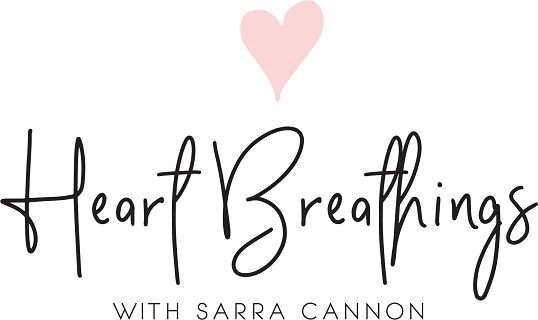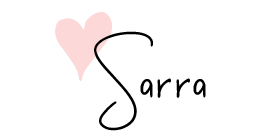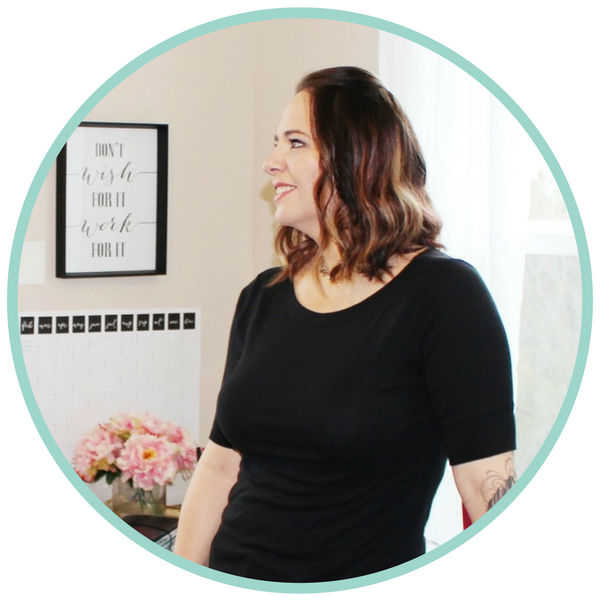

April 25, 2018 by Sarra Cannon
I have gotten so many questions over the years about how to get started as a writer. Where do you begin? How do you actually learn to put a story together?
Today, I am going to give you some of my best tips and share some of my personal experiences of when I first started as a writer. Watch the video here or over on YouTube, or keep reading for the full post.
Writing is a craft. A skill. Which means it takes time to learn how to do it to the best of your ability.
I know that many young writers I have spoken to believe that all they need to do is sit down and they will just intuitively know how to put a story together. I know that’s what I believed when I quit my job as a teacher back in 2007 to pursue a writing career.
I had some ideas for stories brewing in my mind, and I thought it would be simple to get them onto the page. It was only after I actually started trying to make that happen that I realized just how clueless I was.
I mean, I had been reading books for decades. Surely, I knew how to do this! But I was so wrong!
Yes, some of storytelling is intuitive, and if you’re an avid reader, chances are you know how to put together some dialogue and a decent description or two. However, when it comes to the whole package of creating a new world, creating characters, pacing your story, knowing when to ramp up the tension and when to slow things down, there is a lot more to writing than simply sitting down at the keyboard.
Imagine, for example, you wanted to learn to be a professional pianist. If you had never played the piano before–with the exception of maybe Chopsticks at a party once–you certainly wouldn’t expect to just sit down and be able to play Rachmaninoff in front of a crowd of guests.
No, you would begin to practice. You would learn to read music. You would start with simple songs, hire a teacher, practice for hours every day. And slowly, you would get better.
So why would you expect to be able to write a bestselling novel without ever studying the craft of writing?
I know that it seems like writing should be easy and intuitive, and to an extent, it should be. But if you don’t take the time to learn how a novel is structured, expectations for your particular genre, how to properly put a sentence together, how to write dialogue tags, or how to build suspense, your amazing story idea may never actually get finished.
In my experience, the more books I read on writing, the better I become. I don’t take every single piece of advice from every book I’ve read, but usually, a book will have at least a few really great a-ha moments for me that helps me to expand as an author.
**All of these links are Amazon links, but many of these books can be found at your local library or other ebook vendors. Some of the links above are also affiliate links, meaning at no additional cost to you, if you make a purchase, I may be compensated.
My advice here is to grab one or two books on story structure first. Start watching movies and reading books with your eye on how the plot is structured. Pay attention to the genre you most want to write and see what you can discover about how those stories are told.
The more you learn, the better you will become as you start to write.
When I started this process of reading and studying the craft of writing in 2007, I bought myself a really nice notebook, got a stack of writing books from the library, and I started making notes on each of the books as I read. For me, handwriting notes helps me to absorb the information. It was as if I was back in college again, but I’m a bit of a nerd, so it was super fun and exciting. 😛
But regardless of how you felt about school, please don’t skip this part. Learning how to be the best writer you can be comes mainly from three things: your own natural-born talent, your ability to learn how to craft a story, and how much time you spend practicing the craft of actually writing. All three are important, but way too many people skip the learning phase and never get past the frustrating middle of their book to see it through to the end because they simply don’t know how to do it.
If you’d like to see an entire post and video on my favorite books on writing, comment below!
If you’re wanting to learn to play the piano, how quickly do you think you’ll progress if you dedicate thirty minutes every few weeks to practicing? Right. You’re never going to improve at all.
The same is true for your writing. If you don’t sit down and actually explore the process of writing, you’re never going to get better.
For me, this started with short stories, because I felt a full-length novel was too overwhelming for me at the beginning. I would read my books on craft in the evenings, and every morning, I would get up and start writing. A lot of that early work has since been deleted, never to be seen again (hopefully), but it was an important step in my process.
In fact, I completed over twenty short stories and four full-length novels before I ever published anything in 2010. That first published novel, Beautiful Demons, was actually my fourth completed novel, but taking the time to practice and improve meant that by the time I was ready, I was getting pretty good at this writing thing.
I look back on that novel now and see how I still had so much to learn, but at the same time, that novel has now been downloaded over a million times and was the beginning of a series that has now sold over half a million copies. If I had not taken the time and dedicated myself to sitting down every single day for several years, I don’t know that I would be where I am today.
That’s not to say that everyone needs years of practice. I’m sure there are writers who improve significantly very quickly. There are other writers who are just naturally more talented than I was when I started. Everyone grows at their own pace, but one thing is certain: If you don’t sit down and actually write, you’re never going to improve.
The key here is not to get frustrated with yourself and expect it to be perfect! You wouldn’t expect to sit down at the piano and immediately play a beautiful Sonata, so why expect to be a perfect writer on day one?
Let’s use another analogy. Let’s say you wanted to learn to ice skate. If you’d never been on skates before in your life, you wouldn’t expect to sail out onto the ice and be able to land a triple axel, would you? No, you would put on your skates, spend time just finding your balance, and you would slowly move onto the ice.
And you would probably totally suck at ice skating.
At first. Writing is the same way. It’s okay to suck and write terrible words. The key is getting back to your keyboard every single day and practicing. Over time, you’re going to get better. I promise.

This brings me to the third tip: Schedule Time For Your Writing. One of the most common excuses I hear from writers is that they simply don’t have enough time.
The honest truth is that you do have time. You simply haven’t made the time in your schedule for it. Like I said in this post last week, all humans have the same 24 hours in a day. It’s how you choose to spend it that matters.
If you are serious about learning to be a better writer–and hopefully making money writing someday–then you have to make it a priority. That means sitting down and figuring out where you’re going to make time for writing.
I recommend writing every day, even if it’s just half an hour or a single writing sprint. When I was first getting started, I wrote for at least two hours every day, and I spent another two hours a day reading books on craft. You may not have that much time to put into this at first, but it’s up to you to sit down with a planner or your Google Calendar and figure out how much time you have and what you’re going to cut out to make it happen.
Some people are so dedicated, you’ll find them sitting in the car rider pickup line for thirty minutes waiting for school to get out, typing away on their laptop or tablet. Others will take their laptop to soccer practice or to a coffee shop three afternoons a week. For you, it might mean cutting out that TV show you love to watch or getting up an hour earlier to find time to write, but if you’re serious about this, you’re going to have to make time for it.
And let’s be honest. For the vast majority of us, it would be as simple as getting off social media for half an hour a day.
You can do this. Just make it a priority, schedule it in advance as if it were a meeting with your muse, and get it done.
Another great way to learn is by observation. Reading books on writing is great, but you can learn just as much by reading (and re-reading) the authors you most admire.
As you’re reading, start to pay attention to what you love most about the way they tell stories. Pay attention to how dialogue is written. If something reads clunky, try to figure out why? What are the things you don’t like about this author? Are they always repeating phrases or are their characters a bit annoying?
The more you begin to notice what you do or don’t like about other books you read, the faster you’ll begin to decide on your own style of writing.
Movies are also great for this. Since you can finish a movie in about two hours or less, it’s a great way to study story structure, pacing, and dialogue without having to invest as much time as you would with a novel.
Plus, that means you get to watch movies as research! It’s work! Really!!
Alexandra Sokoloff recommends making a Top 10 list of movies in the genre you’d like to write. In her book Screenwriting Tricks for Authors, she advises that you go through these movies, and as you watch them, make notes about the first doorway, the elements of each act, and other story structure elements that might be useful. This is also a great way to begin to understand genre expectations so that you can make sure you understand what fans of that genre expect and love about it.
After you’ve been writing for a while, it’s also important to start to get feedback on your writing. Yes, that could mean passing your first chapter off to your best friend, but when you’re ready to take it a step farther, seek out local or online writer groups.
I joined my first critique group in December of 2007, and it was a powerful experience for me. These women helped shape me as a writer. Each week, I sent them a chapter of my writing and they would send their own chapters. We met once a week at a local Panera and would take twenty minutes each to go through our comments and feedback.
I will tell you, not everything they had to say was positive. They were kind to me, but they were brutally honest, too. I joined the group to get better, so I walked into our meeting every week knowing that they were giving me notes to help me, not to upset me.
When you put yourself out there for criticism, it’s important to set your ego aside and to listen. You won’t always agree with what the other people have to say, but you should at least consider their feedback with an open mind. We all want to believe our work is great, and it can hurt when someone says they didn’t connect with your character or the story felt rushed.
Often, our first instinct is to defend ourselves. But she’s been through so much! She’s emotionally closed off! That’s the whole point! But when you step back and think about it, if the reader wasn’t getting your point, you’ve probably done something wrong.
If you truly want to get better, you’re going to have to be able to have a thick enough skin to take criticism, listen to it openly, and then turn a harsh eye on your own work for the sake of making it better.
Even now, after twenty-three novels, I still have beta readers who give me constant feedback on my work. They are incredibly valuable to me, and if they tell me something isn’t as powerful as I wanted it to be, I don’t let it send me into a depression. I fix it. I send it back. I make it better.
It’s part of the writing process, and if you can’t handle critique from the people close to you, how are you going to handle it when thousands of strangers are reading your book?
One of the best things I would love for you to understand right away is that being a writer is dedicating yourself to learning more. Always.
I hope this post has helped you figure out where to start! If you’re just getting into writing, please take a second to comment below and let me know you are here! I’d love to hear more about your story, why you want to write, and what genre you’re most drawn to.
I’d also love for you to subscribe to my YouTube Channel where I give lots of great advice on writing, organizing your writing life, and self-publishing.

Subscribe to download this free guide: "What Do You Really Want Out Of Your Publishing Career?".
These journaling prompts are designed to help you get real with yourself, shut out all the other voices and all of your fears, and just sit with your own desires for a little while. What do you truly want?
Your answers here will guide the decisions you'll make about everything moving forward! As a bonus, you'll also receive weekly updates from me with links to my new posts and YouTube videos.


I have been self-publishing my books since 2010, and in that time, I've sold well over half a million copies of my books. I'm not a superstar or a huge bestseller, but I have built an amazing career that brings me great joy. Here at Heart Breathings, I hope to help you find that same level of success. Let's do this.
Hi Sarra: I found you in a round about way today. This morning, YouTube suggested your planner video which I thoroughly enjoyed. I love planners and I’m always looking for different ways to use them. Your video showed a zillion ideas! I’m a paper holic as well! One of your planners is devoted to your writing and that struck a chord also. I have “stories” looping in my head most days and I know I must start writing them down, for no other reason than to get the “dictation” to stop. Really though, I would love to learn to write the stories in a creative fashion for others to possibly enjoy. I Googled your name and found your “hearbreathings” web site with great advice for aspiring writers. How wonderful for us all. Thank you. I look forward to reading all you have to offer and watching more of your videos. I love your suggested reading list. I’m going to attack that too. Take care Sarra and thank you for helping. Donna O.